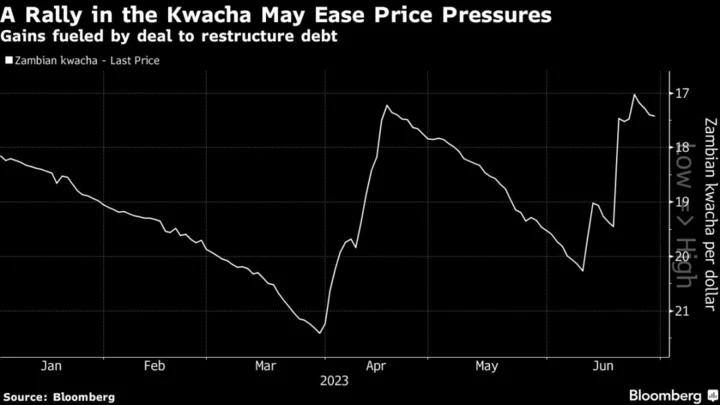Zambia’s inflation rate fell to a four-month low in June on food prices, and is set to decline further when the impact of a recent rally in the kwacha seeps through.
Annual inflation eased to 9.8%, from 9.9% in May, Statistician-General Mulenga Musepa told reporters in Lusaka, the capital, on Thursday.
Africa’s first pandemic era-defaulter’s currency, which has whipsawed since March because of delays in clinching a deal to rework external loans, has gained almost 13% against the dollar since June 12, just after the statistics office completed its data collection for the consumer price index.
The appreciation has not been captured in the current inflation reading and may see prices of imports ease, said Musepa.
The currency rally was fueled first by expectations of an agreement in principle to restructure $6.3 billion of debt with bilateral lenders and then because of the deal sealed on June 22, setting a precedent for a growing list of countries struggling to service their liabilities.
With the agreement in place the stability of the kwacha will be enhanced, Finance Minister Situmbeko Musokotwane told lawmakers on Tuesday. That should help keep inflation in check in a nation that imports everything from fuel to fertilizer, easing pressure on the central bank’s monetary policy to raise rates for a third time this year when it meets in August.
The central bank, which targets inflation at 6% to 8%, expects it to average 10.5% this year and remain above the range through to the first quarter of 2025.
Food prices slowed to 11.2% in June from 11.6% last month and non-food price growth quickened to 7.8% from 7.6%. Prices rose 0.8% in the month, compared with 0.6% in May.

